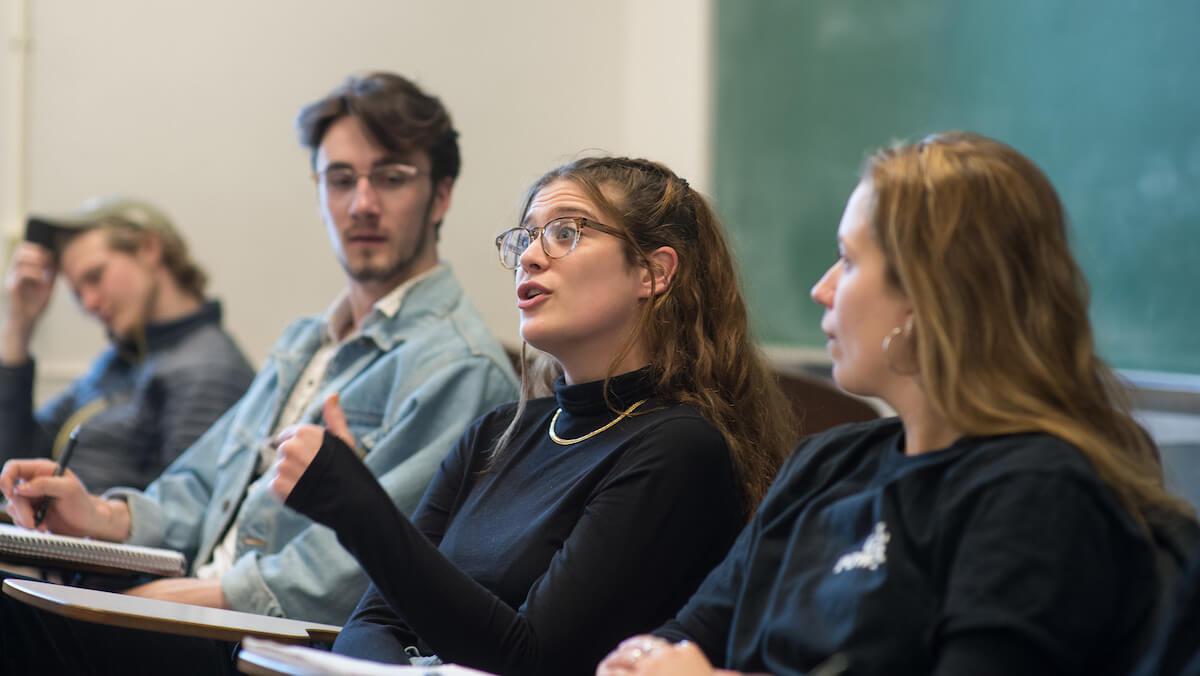Every year, students and families have hard conversations as they attempt to balance important considerations such as cost of attendance, campus life, and academic supports when choosing which college to attend. I’m confident that, in many of these conversations, the student’s choice of a major features prominently. Families ask their children, “What are you going to do with a degree in that?”
Many students pursue professional majors such as engineering, education, and nursing. Others pursue majors that have less defined career paths but are still focused on a specific range of careers, like environmental science, public health, or community development. However, nearly half of the students entering the University of Vermont this fall will major in the liberal arts, where the question of “What are you going to do with a degree in that?” is most often asked.
But this is not the right question, for two reasons. First, the degree is in the liberal arts, not the major. Second, the fact that a liberal arts degree is not preparation for a specific career actually broadens the scope of one’s career opportunities. To be sure, a major is very important and is a cornerstone of the bachelor’s degree. It provides depth in a single discipline and helps provide a coherence to the broad liberal arts degree.
However, the reality is that a major encompasses, at most, 10 or 11 courses out of the 40 or so that are required to earn the bachelor’s degree. Ten courses will not make a student an expert in a field. And what of the other 30 courses—what role do they serve? At UVM’s College of Arts and Sciences, we have shifted the focus toward the skills that students master, regardless of major, across their 40 courses. These are the skills that employers are seeking, such as analytical and critical thinking; written, visual, and oral communication; creative expression and innovation; quantitative reasoning and applied data interpretation; and teamwork, collaboration, and leadership. In combination with co-curricular experiences such as internships, students practice and hone these skills while exploring career opportunities that will help them launch their first careers. In the College of Arts and Sciences, we have developed a robust set of internship experiences for our students to explore a variety of careers, regardless of their major.
We’ve known for some time that students with liberal arts degrees succeed in careers often unrelated to their majors (see this article highlighting six College of Arts and Sciences alumni who are thriving in careers seemingly unconnected to their majors). Satyan Devadoss, Professor of Mathematics at Williams College, demonstrated this quite convincingly by associating the majors of nearly 16,000 Williams College alumni with their career paths. The data show clearly that the major does not limit student’s career path nor are there career paths that are inaccessible to students in certain majors. Indeed, students from each of the College’s 15 plus majors found careers in each of the 15 career categories, from arts and entertainment to sales, education, health, and technology. To be sure, a large proportion of economics majors found careers in banking and finance, but so too did students who majored in the arts, history, and languages. I would argue that the economics majors, like the majors in the arts, history, and languages, chose banking and finance because of their interests in banking and finance, not because of any training afforded by their majors. Similarly, the majors in the arts, history, and languages were successful in entering a career in banking and finance not because of their majors, but because of the skills they acquired through their liberal arts degrees.
So, how do we answer the question “What am I going to do with a liberal arts degree with a major in English, history, or any of the dozens of other liberal arts majors?” The answer is almost anything! My advice to students is this: Choose a major based on your passions and curiosities and take advantage of co-curricular opportunities, such as internships, to try out different careers options while practicing and honing those liberal arts skills that employers prize. You will be successful.
Bill Falls is the Dean of the College of Arts and Sciences at the University of Vermont.
